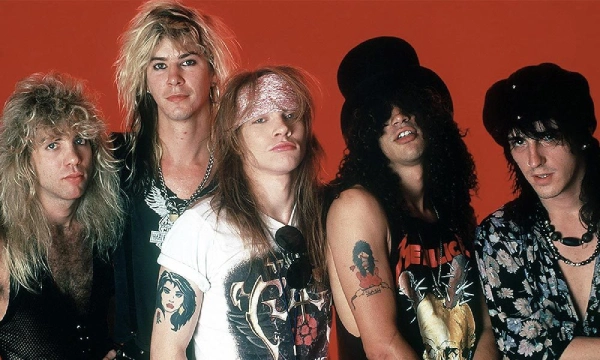Back in the late ’80s, while most bands in the L.A. rock scene were all about glam and glitter, Guns N’ Roses were something else entirely. They didn’t just look rough—they were rough. No fancy outfits or polished personas here. GNR rolled into the spotlight like a pack of wild dogs, dragging every bit of chaos, addiction, and street grit with them. And that’s what made them so magnetic. They weren’t pretending to be dangerous—they were living it.
When Appetite for Destruction dropped, it wasn’t just another rock record—it was a raw, loud, unapologetic scream from the underbelly of Hollywood. Songs like “Welcome to the Jungle” gave a front-row seat to the city’s dark side, but one track in particular went deeper than the glitz and into something far darker: heroin addiction.

That song, driven by a jittery, urgent Bo Diddley beat, was more than just a groove—it was a confession. Written during a time when Slash and Izzy Stradlin were neck-deep in addiction, it told the story of chasing a high you know might kill you. There was no glamor, no filter—just gritty honesty about time lost, lives fraying, and the drug that kept pulling them under.

But what really shook fans came later—when Axl Rose, never one to hold back, brought the band’s dirty laundry to the stage. During a high-profile tour with The Rolling Stones, he stunned the crowd by calling out his own bandmates: “If certain members don’t stop dancing with Mr. Brownstone, the band is finished.” He didn’t say names. He didn’t need to.
Slash later admitted he knew it was aimed at him. In interviews, he opened up about how deep he was into heroin and how that onstage moment felt more like betrayal than concern. It drove a wedge between him and Axl—one that would take years (and multiple breakups) to even begin to mend.
Despite all the drama and destruction, Slash survived it. Barely. After serious heart issues, a pacemaker, and years of cleaning up, he came back. Stronger, clearer, and eventually reunited with Axl and Duff McKagan. Together, they started playing that same song again—but now with the weight of everything it once meant.
These days, when GNR plays that infamous track live, it’s more than just a crowd-pleaser. It’s a moment. A memory of how close they came to losing it all—and how lucky they are to still be standing. It’s not just music anymore. It’s the scars behind the sound.
